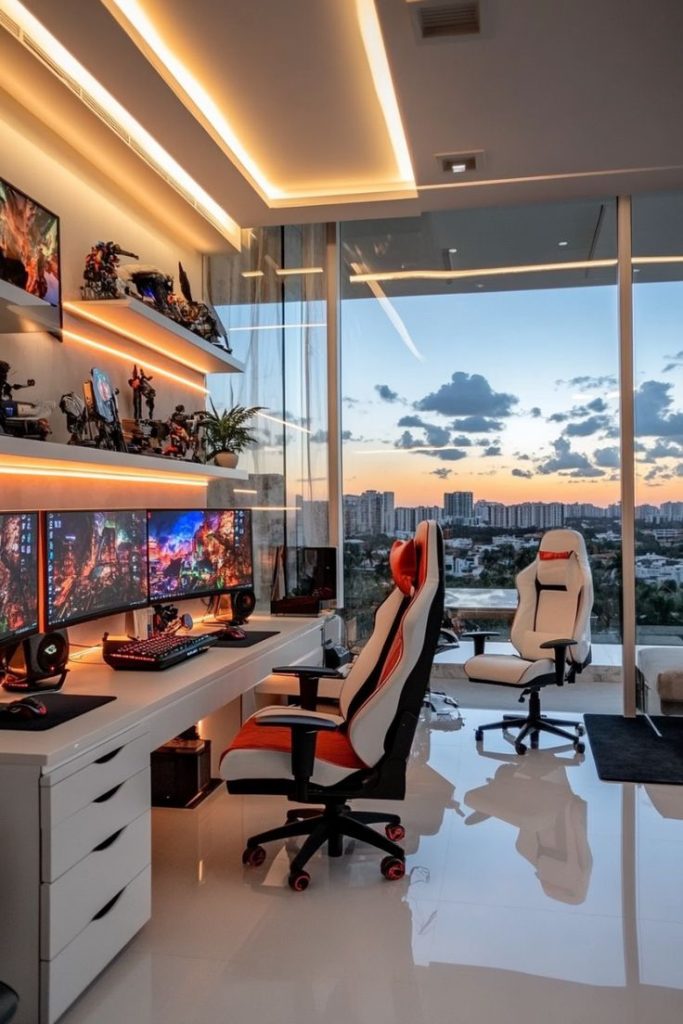Fast-paced games demand quick reflexes, sharp attention, and fast reaction times to keep you ahead of your competition. Whether you’re aiming to improve your FPS skills or conquer fast-action sports games, boosting your reaction time can give you a serious edge. Here’s a guide to mastering the art of quick reactions in gaming.
1. Practice Consistently
As with any skill, practice is crucial. The more time you spend playing, the more you’ll familiarize yourself with in-game cues, actions, and responses. Gradually, you’ll notice faster reactions as you improve your muscle memory and pattern recognition for recurring events in the game.
Quick Tip: Focus on one game or game genre when practicing. The consistency helps your brain and muscles learn specific reactions faster.
2. Use Aim Trainers and Reaction Time Tools
Aim trainers like Aim Lab and Kovaak’s FPS Aim Trainer are designed to help you improve your speed, accuracy, and reaction time. These tools simulate in-game scenarios and provide targeted exercises that can sharpen your reflexes. They often include drills to help with hand-eye coordination, tracking targets, and clicking accuracy.
Popular Tools:
- Reaction Time Test: Basic browser tests can measure your current reaction speed and help you monitor improvement over time.
- FPS Aim Trainer: Downloadable software that targets FPS-style reaction improvements for aiming and tracking.
3. Optimize Your Hardware and Settings
Your equipment plays a significant role in reaction time. Optimal settings and reliable hardware ensure that your input matches your in-game actions as closely as possible.
Key Hardware Tips:
- Mouse Sensitivity: Adjust your sensitivity to a comfortable level where you can quickly and accurately make small adjustments. Lower sensitivity often improves precision for FPS games, while higher sensitivity might benefit fast-action games where quick movement is essential.
- Monitor Refresh Rate: A higher refresh rate (144Hz or above) means your screen displays more frames per second, which can make fast actions appear smoother and more responsive.
- Low Latency Mode: Check your system settings to ensure you’re using low-latency or “game mode” settings, which reduce input lag and boost response time.
4. Improve Hand-Eye Coordination
Fast-paced games rely on accurate hand-eye coordination. Training your brain to react quickly to what you see on-screen can significantly improve your in-game reactions.
Exercises for Hand-Eye Coordination:
- Ball Toss Exercise: Toss a ball from one hand to the other while tracking it with your eyes. This simple exercise improves timing and focus.
- Typing Speed Drills: Typing games or apps increase your overall finger speed and coordination, especially if you use fast fingers for in-game controls.
5. Stay Calm and Focused
Stress and tension can slow your reaction time. Being able to remain calm in high-stress scenarios helps you think more clearly and react faster. Try practicing techniques to maintain focus under pressure, especially when competing.
Focus Techniques:
- Breathing Exercises: Before an intense gaming session, take deep breaths to calm your nerves.
- Meditation and Visualization: Visualizing specific in-game scenarios and how you would respond can build mental resilience, allowing you to stay cool when they happen in real-time.
6. Take Care of Your Physical Health
Your physical well-being has a direct impact on reaction time. To maximize your in-game potential, prioritize proper nutrition, hydration, exercise, and sleep.
- Sleep: Quality sleep helps your brain process and remember patterns, which is essential for reaction-based skills. Aim for 7-9 hours per night to stay sharp.
- Nutrition: Foods rich in omega-3 fatty acids, such as fish, walnuts, and flaxseed, are known to boost cognitive functions. Avoid excessive sugar and caffeine, as they can cause energy crashes that impair focus.
- Hydration: Dehydration can slow down cognitive functions and impair focus. Keep water nearby during gaming sessions.
7. Build Muscle Memory
For games that require repeated actions, building muscle memory can drastically reduce reaction time. By practicing specific moves and responses, you train your fingers to perform them almost automatically.
Tips to Develop Muscle Memory:
- Repeat Movements: Practice frequently-used game actions, such as strafing, crouching, or quick-scoping, until they feel natural.
- Small, Quick Sessions: Rather than a single long session, multiple short practice sessions throughout the day can help you retain muscle memory.
8. Try Cognitive Training Games
Cognitive games designed to improve reaction time and memory can provide additional benefits. Many of these games focus on speed and accuracy, improving your overall cognitive processing speed.
Recommended Cognitive Games:
- Lumosity: Offers various brain games that focus on processing speed, attention, and memory.
- Brain Age: A classic option for improving reaction time through short daily exercises.
- Dual N-Back Games: Challenging memory-focused games that also test and improve reaction speed.
9. Learn to Anticipate
In fast-paced games, reaction time isn’t just about immediate reflexes but also involves reading your opponent’s actions. Watching patterns and predicting your opponent’s moves allows you to react preemptively.
How to Improve Anticipation:
- Watch Replays: Studying gameplay replays can reveal patterns in enemy movements or common attack strategies.
- Play Mindfully: Take note of recurring scenarios and the actions that follow. Over time, you’ll recognize certain cues that let you predict and counteract opponent moves faster.
10. Keep Practicing in Real-Time Scenarios
Finally, the best way to improve your reaction time is through real in-game scenarios. Solo practice helps, but nothing beats the fast-paced chaos of real gameplay to push your limits.
How to Practice Real-Time Reactions:
- Warm-Up Matches: Start each session with warm-up games to get your reflexes primed.
- Challenge Friends: Set up matches with friends to create a competitive environment that keeps you sharp.
- Gradual Skill Increase: Gradually play with better opponents, who will challenge you and push your reaction time to the next level.

